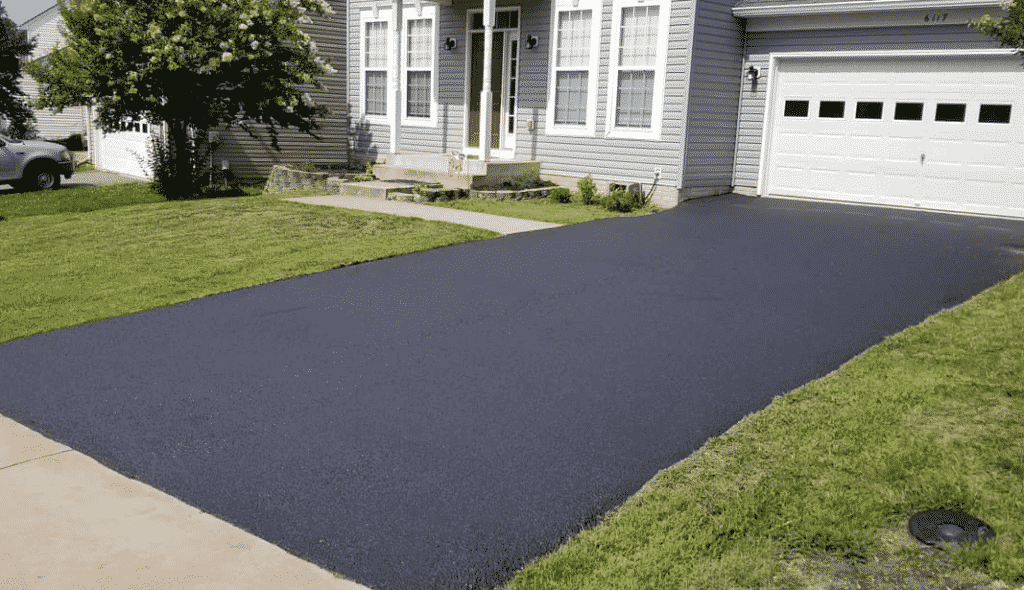Cold Mix Asphalt Vs. Hot Mix Asphalt: Which Is Right for You?

Make-up Differences
Cold mix and warm mix asphalts differ substantially in their make-up, with distinct attributes that influence their performance and applications. Cold mix asphalt is produced by emulsifying the asphalt binder with water and an emulsifying representative before blending it with accumulation. This approach allows for the asphalt to be convenient at reduced temperature levels, making it ideal for temporary repair work and for usage in cooler weather. Hot mix asphalt, on the other hand, is produced at high temperature levels, typically between 300-350 ° F, which assists to accomplish far better compaction and an extra durable end product. The hot mix asphalt production process involves heating up the aggregate and asphalt binder individually before integrating them at the asphalt plant.
Furthermore, cold mix asphalt often tends to be much less thick and extra adaptable than hot mix asphalt. This versatility makes it better suited for areas with higher levels of activity, such as driveways or roadways with rush hour. On the other hand, hot mix asphalt is known for its high sturdiness and resistance to rutting and splitting, making it a favored choice for highways and high-traffic roadways where durability is important.
Setup Process Differences
The process of setting up cool mix and hot mix asphalt displays remarkable differences in their needs and treatments. In contrast, hot mix asphalt requires an extra elaborate setup procedure. Due to the home heating needs, hot mix asphalt setups are typically carried out by experts with specific tools, ensuring a more structurally audio and irreversible outcome.
Sturdiness and Durability Variables
When considering asphalt alternatives, toughness and durability are important elements to evaluate for long-term sidewalk performance. Warm mix asphalt (HMA) is understood for its remarkable durability and long life.
In terms of long life, HMA normally exceeds CMA due to its premium stamina and resistance residential properties. HMA sidewalks have a longer life span, requiring much less frequent repair services and maintenance, which can convert to cost financial savings over time. In addition, HMA pavements are extra quickly personalized to satisfy details project demands, further improving their durability.
Expense Factors To Consider
Considering the financial implications is an important element when assessing the option between warm mix asphalt (HMA) and chilly mix asphalt (CMA) for pavement projects. While the first price of warm mix asphalt is commonly greater than that of cool mix asphalt, HMA commonly supplies a much more affordable service in the long run due to its superior resilience and longevity.
In enhancement to material expenses, it's important to take into consideration the expenses connected with installation and maintenance when contrasting HMA and CMA. Ultimately, the decision in between HMA and CMA should take right into account not simply the first price but additionally the Go Here long-term monetary effects to identify the most cost-efficient option for the certain sidewalk project.
Environmental Effect Contrast
Contrast of the environmental impacts between warm mix asphalt (HMA) and cool mix asphalt (CMA) reveals unique distinctions in sustainability techniques. HMA manufacturing requires high temperatures, causing increased energy usage and greenhouse gas discharges. The procedure additionally releases volatile organic compounds (VOCs) and harmful air toxins (HAPs) right into the atmosphere. On the other hand, CMA is created and applied at lower temperature levels, reducing energy use and exhausts dramatically. The reduced More Help manufacturing temperature levels of CMA lead to reduced gas usage and reduced levels of CO2 emissions, making it a more environmentally friendly option.
Additionally, the use of CMA usually includes recycling existing asphalt sidewalk, promoting source conservation and lowering the amount of waste sent out to garbage dumps. By deciding for CMA over HMA, roadway building projects can add positively to environmental preservation efforts.
Verdict
To conclude, the option in between cold mix asphalt (CMA) and hot mix asphalt (HMA) relies on various elements such as make-up, installation process, longevity, longevity, expense, and ecological impact. asphalt patch repair. While CMA supplies a cost-efficient and quick service for minor repairs, HMA makes certain superior resilience and durability for hefty website traffic locations. Take into consideration these factors thoroughly to figure out which sort of asphalt is the appropriate selection for your paving requires

Considering the monetary effects is a vital facet when assessing the option in between hot mix asphalt (HMA) and cold mix asphalt (CMA) for sidewalk tasks. While the initial cost of warm mix asphalt is commonly higher than that of cold mix asphalt, HMA commonly gives a more affordable option in the lengthy run due to its anonymous superior resilience and durability. asphalt repair.Comparison of the environmental impacts between hot mix asphalt (HMA) and cold mix asphalt (CMA) exposes distinctive differences in sustainability practices.In verdict, the choice between cold mix asphalt (CMA) and hot mix asphalt (HMA) depends on various elements such as structure, setup process, longevity, long life, price, and ecological influence